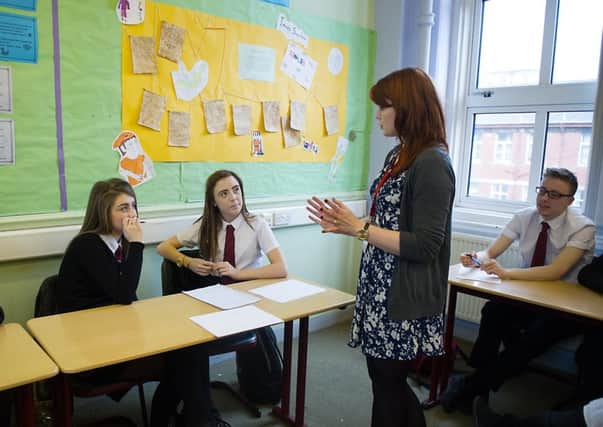Claire Gillespie: How do we ensure children have skills for tomorrow's jobs?


Life in the 21st century already looks radically different to the decades before. Remember when you had to visit your high street bank to make a transaction? Visit the travel agent to book a holiday? Or when studying meant you had to physically be in the classroom? These are all tasks which we perform online, and which we increasingly expect to be online in today’s world.
The influence of the internet is increasingly impacting on our day-to-day lives, and the more we interact online the more we need people with technology skills who can develop the websites and online platforms to make these tasks possible. This technology makes our life easier, but for young people and parents, they need to consider how this will affect their job opportunities and where employment opportunities will be in ten or 20 years. And how do we ensure our children have the skills to fill them?
Advertisement
Hide AdAdvertisement
Hide AdJust consider the technology involved in our online supermarket shop. Someone has to ensure the website looks good and it is an enjoyable shopping experience that works. The website has to be capable of taking bank details and process payments securely as well as communicating with the delivery teams. So even a simple shopping website has a multitude of different job roles, and what links all of these is code.
Code is the recipe, or set of instructions which make all of these things work. Coding is the building block of the internet and without it none of these online tasks would work.
So what does this mean for your child’s future? Well, first of all, there are plenty of these jobs. In Scotland it is estimated up to 12,800 vacancies will be created each year in digital technology and many of these will be for coders and software developers. The projections for growth in the years ahead are similar and, at the moment, we don’t have enough people coming through our colleges and universities with the skills to fill the posts. It is one of the fastest growing sectors in Scotland, and many other countries for that matter.
Coders are also highly skilled jobs. They require a lot of training to perform so they are rewarding, with technology jobs paying more than the Scottish average.
The good news is that it is possible to give your child skills in this field from an early age. There are logic games, puzzles and toys so even the youngest of kids get the opportunity to experience the problem solving mindset these jobs require in a fun way.
Websites, such as Coder Dojo are free to use and have simple building blocks aimed at children from the age of seven and Code Academy for those a little older.
Toys such as Code-A-Pillar provide even younger children a taste of the coding approach and the Code Master boardgame gives children the chance to build their skills without even looking at a computer.
It is a changing world and many jobs are evolving with it. The good news is that there will be opportunities for our children if they have the right skills to meet the needs of the 21st century industries but we need to embrace it and support our young people in job roles we may not yet fully understand.
l Claire Gillespie is Digital Technologies Sector Skills Manager at Skills Development Scotland